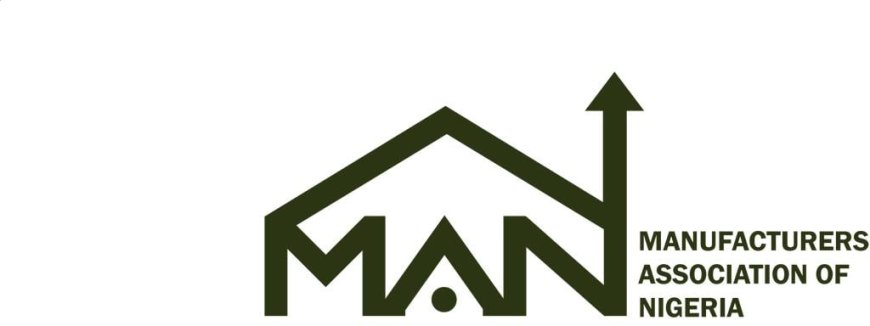Manufacturers record fragile growth as credit drops N7.72tn

Manufacturers Association of Nigeria has stated that credit to the manufacturing sector decreased by 9.5 per cent to N7.72tn as of March 2025, down from N8.53tn in December 2024, amid a fragile recovery that requires urgent policy intervention to sustain.
The association, which released its findings in the Third Quarter 2025 Manufacturers CEO’s Confidence Index report in Lagos on Tuesday, said the decline in credit, high energy costs, and foreign exchange liquidity constraints continued to weigh on the performance of the real sector despite modest gains in output and business confidence.
Director General of MAN, Segun Ajayi-Kadir, said the sector’s resilience remained fragile as key constraints persisted. “High lending rates averaging 36.6 per cent, declining credit access of N7.72tn, and rising unsold inventories of N1.04tn continue to limit manufacturing performance,” he said.
Ajayi-Kadir stated that though capacity utilisation improved to 61.3 per cent in the first half of 2025, from 57.6 per cent in the second half of 2024, the gains were modest and could easily be eroded without decisive policy action.
Our data show that the manufacturing sector is beginning to find its footing after a long period of turbulence. However, this recovery is fragile and could easily falter if we do not receive deliberate, industry-friendly interventions,” he said.
He urged the Federal Government to prioritise measures that would reduce energy costs, strengthen foreign exchange liquidity, and expand access to affordable credit to accelerate industrial growth.
According to MAN, manufacturing value added fell sharply to $25.36bn in 2024 from $55.9bn in 2023, as competitiveness weakened under soaring exchange rates, inflation, and interest rates. The association said manufactured exports rose to N803.8bn in Q2 2025, up from N294.4bn in Q1, showing some resilience despite macroeconomic headwinds.
The report also indicated that 18,935 jobs were lost in the first half of 2025, compared to 10,891 in the second half of 2024, as firms grappled with high input costs and foreign exchange scarcity.
MAN further noted that while the Manufacturers CEO’s Confidence Index recorded a modest rise from 50.3 points in Q2 2025 to 50.7 points in Q3 2025, the improvement was not enough to lift overall business conditions above the 50-point neutral threshold.
Ajayi-Kadir said, “The 0.4-point uptick in the MCCI is significant because it marks the second consecutive quarterly rise, signalling a cautiously improving perception among manufacturers. However, all current indices remain below 50 points, showing that the underlying challenges persist.”
He attributed the slight improvement to “a continuous disinflation trend and a more stable exchange rate”, but warned that high energy costs and disruptions in gas supply had constrained output in several subsectors.
MAN President, Francis Meshioye, in his remarks, described the modest rebound as evidence of “a gradual recovery”, but said the sector still faced “binding constraints” that must be addressed urgently.
Meshioye said, “The manufacturing sector is gradually inching towards recovery, as seen in the consistent increase in the index in Q2 and Q3. However, the top five manufacturing challenges outlined in the report demand urgent government attention to sustain this trend.”
He stressed the need for a private sector–driven industrial policy anchored on the proposed Nigeria First Policy and the forthcoming National Industrial Policy, to ensure alignment between policy intent and industrial realities.
The MAN chief also called on the Central Bank of Nigeria to deepen its recent rate cut, saying, “The time has come for the apex bank to introduce a bolder reduction that can meaningfully lower the cost of credit and stimulate real sector investment. Growth cannot thrive where capital remains prohibitively expensive.”
The association identified key improvements across six groups: Plastics & Rubber, Electrical & Electronics, Food & Beverages, Chemical & Pharmaceuticals, Textile & Footwear, and Basic Metal & Steel. These groups benefited from local raw material sourcing, stable polypropylene supply, fibre optic expansion, and easing foreign exchange pressure.
However, four other groups recorded declines due to high energy costs, gas supply disruptions, illegal logging, limited government patronage, and the influx of imported products.
Ajayi-Kadir concluded that sustaining the sector’s fragile rebound would require coordinated fiscal and monetary actions.
“Currency stability is more than a macroeconomic metric; it is a reflection of national resolve,” he said. “To secure the gains of stabilisation and accelerate prosperity, Nigeria must make manufacturing the nucleus of its growth strategy.”
Director of MAN Research and Economic Policy Division, Dr Oluwasegun Osidipe, presented the MAN Think Tank report alongside the MCCI. He urged the government to fast-track the implementation of industrial policies, tighten pipeline security to boost oil output, expand local refining capacity, and ensure disciplined tax enforcement ahead of the January 2026 tax reforms.
culled from punch.

 admin
admin 


